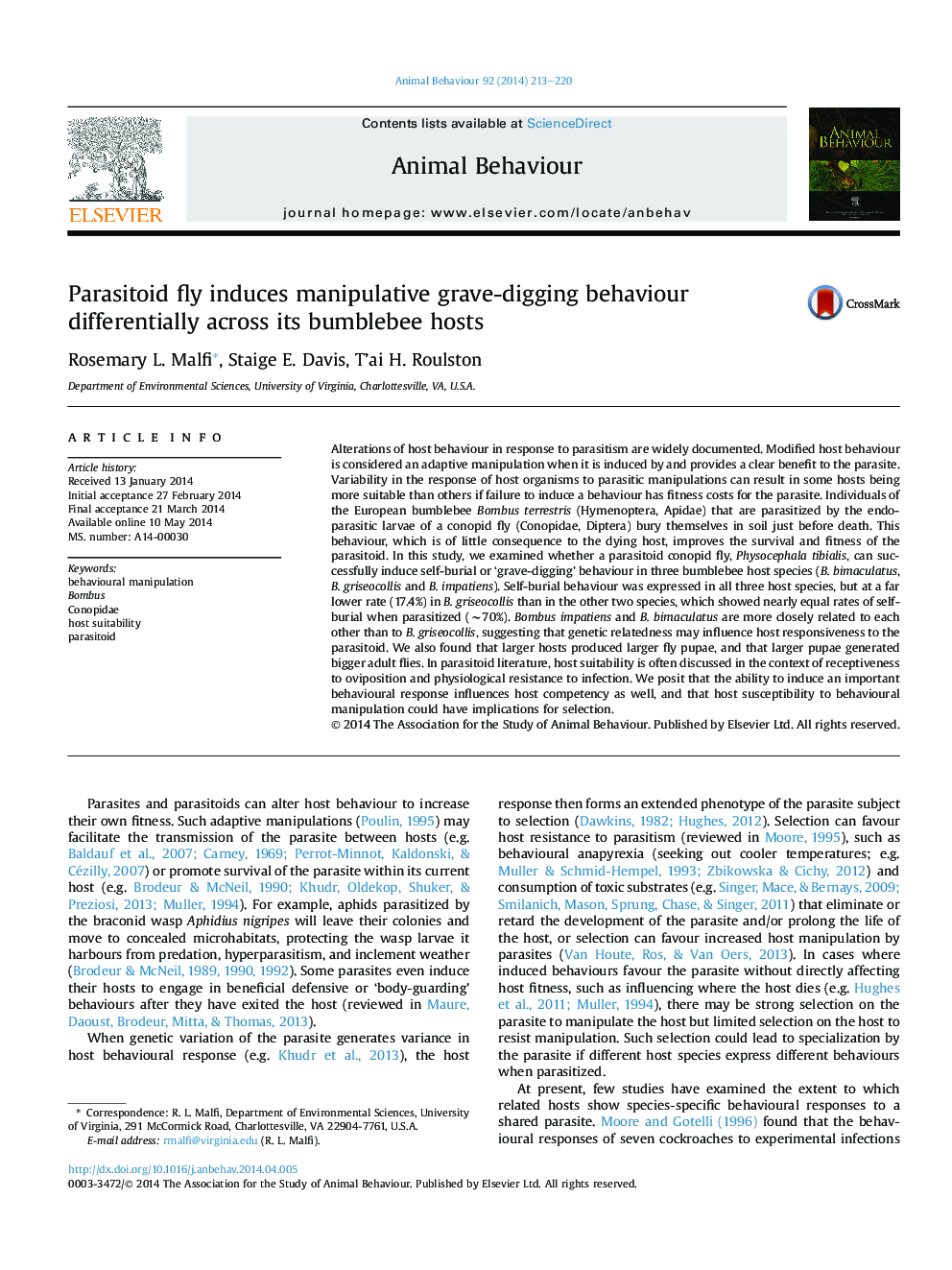| کد مقاله | کد نشریه | سال انتشار | مقاله انگلیسی | نسخه تمام متن |
|---|---|---|---|---|
| 8490565 | 1552236 | 2014 | 8 صفحه PDF | دانلود رایگان |
عنوان انگلیسی مقاله ISI
Parasitoid fly induces manipulative grave-digging behaviour differentially across its bumblebee hosts
ترجمه فارسی عنوان
پرواز پارازیتوئید باعث رفتار غارتگرانه دستکاری شده در میزبان خراب کننده خود می شود
دانلود مقاله + سفارش ترجمه
دانلود مقاله ISI انگلیسی
رایگان برای ایرانیان
کلمات کلیدی
موضوعات مرتبط
علوم زیستی و بیوفناوری
علوم کشاورزی و بیولوژیک
علوم دامی و جانورشناسی
چکیده انگلیسی
Alterations of host behaviour in response to parasitism are widely documented. Modified host behaviour is considered an adaptive manipulation when it is induced by and provides a clear benefit to the parasite. Variability in the response of host organisms to parasitic manipulations can result in some hosts being more suitable than others if failure to induce a behaviour has fitness costs for the parasite. Individuals of the European bumblebee Bombus terrestris (Hymenoptera, Apidae) that are parasitized by the endoparasitic larvae of a conopid fly (Conopidae, Diptera) bury themselves in soil just before death. This behaviour, which is of little consequence to the dying host, improves the survival and fitness of the parasitoid. In this study, we examined whether a parasitoid conopid fly, Physocephala tibialis, can successfully induce self-burial or 'grave-digging' behaviour in three bumblebee host species (B. bimaculatus, B. griseocollis and B. impatiens). Self-burial behaviour was expressed in all three host species, but at a far lower rate (17.4%) in B. griseocollis than in the other two species, which showed nearly equal rates of self-burial when parasitized (â¼70%). Bombus impatiens and B. bimaculatus are more closely related to each other than to B. griseocollis, suggesting that genetic relatedness may influence host responsiveness to the parasitoid. We also found that larger hosts produced larger fly pupae, and that larger pupae generated bigger adult flies. In parasitoid literature, host suitability is often discussed in the context of receptiveness to oviposition and physiological resistance to infection. We posit that the ability to induce an important behavioural response influences host competency as well, and that host susceptibility to behavioural manipulation could have implications for selection.
ناشر
Database: Elsevier - ScienceDirect (ساینس دایرکت)
Journal: Animal Behaviour - Volume 92, June 2014, Pages 213-220
Journal: Animal Behaviour - Volume 92, June 2014, Pages 213-220
نویسندگان
Rosemary L. Malfi, Staige E. Davis, T'ai H. Roulston,
